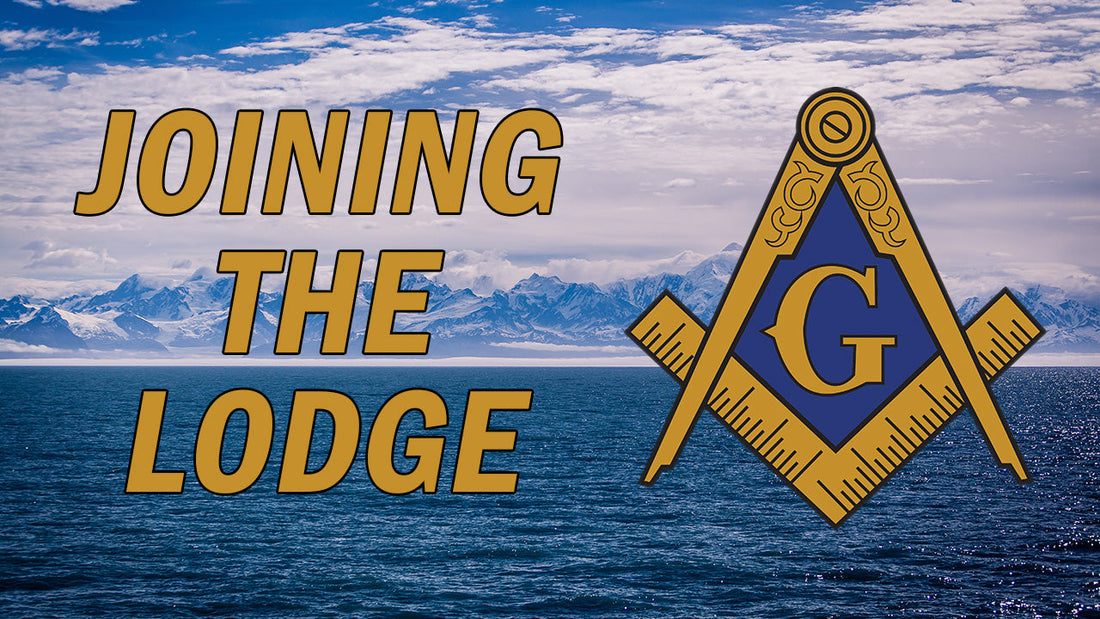
Becoming a Freemason: What You Need to Know Before Joining
Share
Joining the Lodge
Joining a Masonic lodge is a process steeped in tradition and symbolism, reflecting centuries-old rituals that emphasize personal growth, community involvement, and ethical development. Freemasonry is a fraternal organization that aims to promote moral and intellectual advancement through its teachings and practices. While the specifics might vary slightly from one jurisdiction to another, the general steps to join a Masonic lodge can be outlined as follows:
Interest and Inquiry:
The first step in joining a Masonic lodge is expressing genuine interest. Potential candidates often learn about Masonry through family connections, friends, or research. Masonic lodges are not secretive, but certain aspects of their ceremonies are reserved for initiates. Aspiring members should research the values of a Freemason, their history, and expectations before pursuing membership.
Finding a Lodge:
Locate a Masonic lodge in your area. You can use online resources, contact local lodges, or inquire with Masons you know to find information about lodges near you. Each lodge is part of a larger Masonic jurisdiction, and jurisdictional rules and requirements may vary.
Submitting an Application:
Once you've identified a lodge that aligns with your interests, you will need to submit an application for membership. The application typically requires basic personal information, including your background and reasons for seeking membership. It's important to provide accurate information and show a genuine desire to join.
Initial Interview:
After submitting your application, you'll likely be invited for an interview with lodge members. This is an opportunity for both parties to get to know each other better. The interview may cover your motivations for joining, your understanding of Freemasonry, and your willingness to uphold its principles.
Investigation and Committee Review:
Masonic lodges often have an investigating committee that assesses your suitability for membership. This committee may conduct background checks and speak to references to ensure that you uphold the values of Freemasonry and are of good character.
Lodge Vote:
After the investigation, your application will be presented to the lodge members for a vote. Masonic lodges operate democratically, and a favorable vote is typically required for membership. The vote ensures that the membership is in agreement with your admission and that you have a genuine interest in the organization's principles.
Initiation:
If your application is approved, you'll be invited to attend an initiation ceremony, often referred to as an "Entered Apprentice" degree. This ceremony is a profound and symbolic experience, emphasizing personal growth, enlightenment, and moral development. It serves as an introduction to Masonic teachings and values.
Degrees and Progression:
Following the initiation, you'll progress through a series of degrees, each with its own ceremonies and lessons. These degrees include the Fellow Craft degree and the Master Mason degree. Each degree imparts unique teachings and allegorical lessons that encourage self-improvement and ethical conduct.
Continued Learning and Involvement:
Freemasonry places a strong emphasis on personal growth and continuous learning. Members are encouraged to participate in lodge activities, engage in discussions, and further their understanding of Masonic principles. Many lodges offer educational programs, lectures, and events that provide opportunities for members to deepen their knowledge.
Community Engagement and Charity:
Masonic lodges are actively involved in charitable endeavors and community service projects. Becoming a member means contributing to these initiatives and embodying the principles of charity and benevolence. Freemasonry seeks to make a positive impact on both its members and the wider community.
Lodge Leadership and Advancement:
As you become more involved in your lodge, you may have the opportunity to take on leadership roles or participate in lodge governance. Advancement within Freemasonry is not only about personal growth but also about contributing to the well-being of the lodge and its members.
Further Degrees and Orders:
Beyond the three main degrees, most Masonic jurisdictions offer additional degrees and orders that provide further insight into Masonic teachings and history. These are optional and may require further commitment and study.
Lifelong Journey:
Joining a Masonic lodge is not just about completing a series of steps; it's a commitment to a lifelong journey of self-improvement, ethical conduct, and community involvement. Freemasonry offers a supportive and engaging environment for members to explore deeper aspects of themselves and their role in society.
In conclusion, the process of joining a Masonic lodge involves expressing genuine interest, researching lodges, submitting an application, undergoing an interview and investigation, being voted upon by the members, participating in initiation ceremonies and degree progression, engaging in ongoing learning and community involvement, and potentially taking on leadership roles within the lodge. Freemasonry's rich history, values, and commitment to personal growth make it an intriguing path for those seeking to cultivate a deeper understanding of themselves and their place in the world.
